
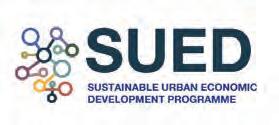

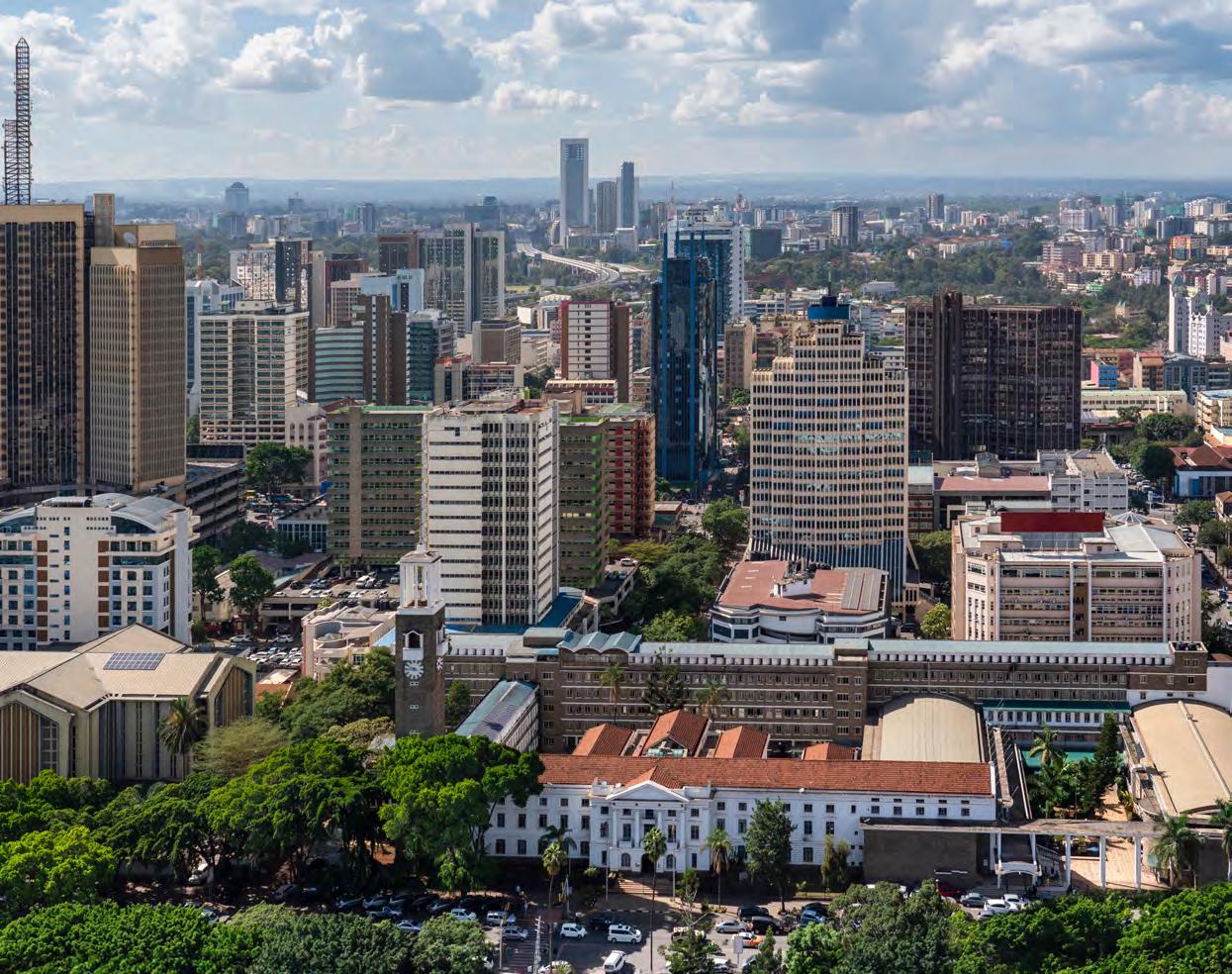
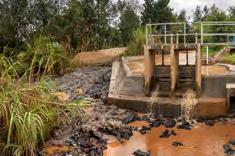















A cashew nut fruit blooming in Lamu Municipality




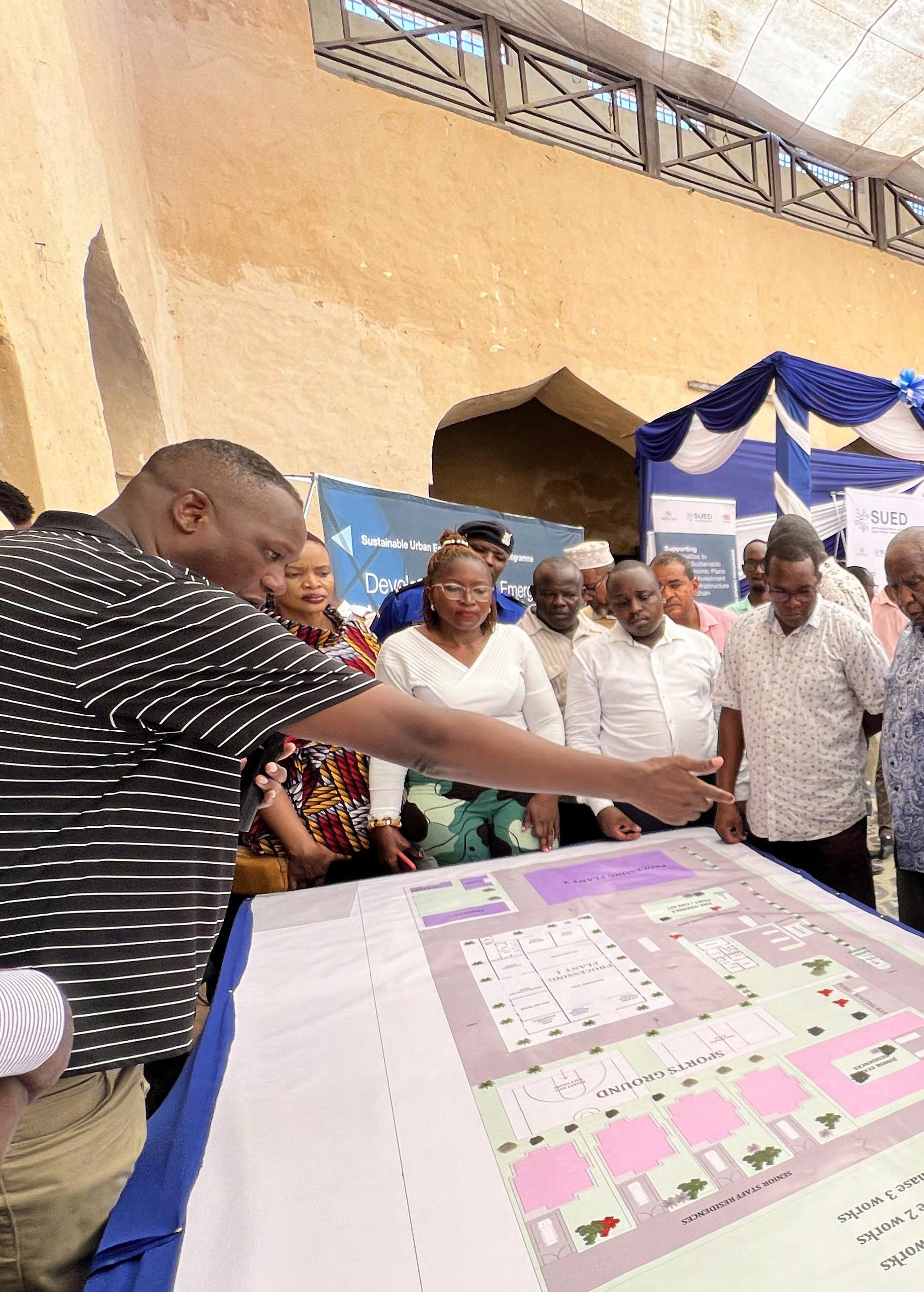
The British High Commissioner, H.E. Neil Wigan and Lamu County Governor H.E. Issa Timamy look through the site plan of the proposed Cashew Nut Processing Plant that is currently under construction.

The Sustainable Urban Economic Development programme is a £43 million seven-year programme (2018-2025) funded by the UK Government to support the sustainable economic growth of Kenya’s secondary towns. The programme’s funding is channeled through two mechanisms; seed funding that is used to de-risk value chain and critical climate resilient infrastructure investments to attract publicprivate investments into identified projects and technical assistance in three thematic areas i.e., urban economic planning, investment attraction and capacity building
The programme’s objectives are to:
•Promote inclusive economic development
•Enhance urban infrastructure and planning
•Foster job creation
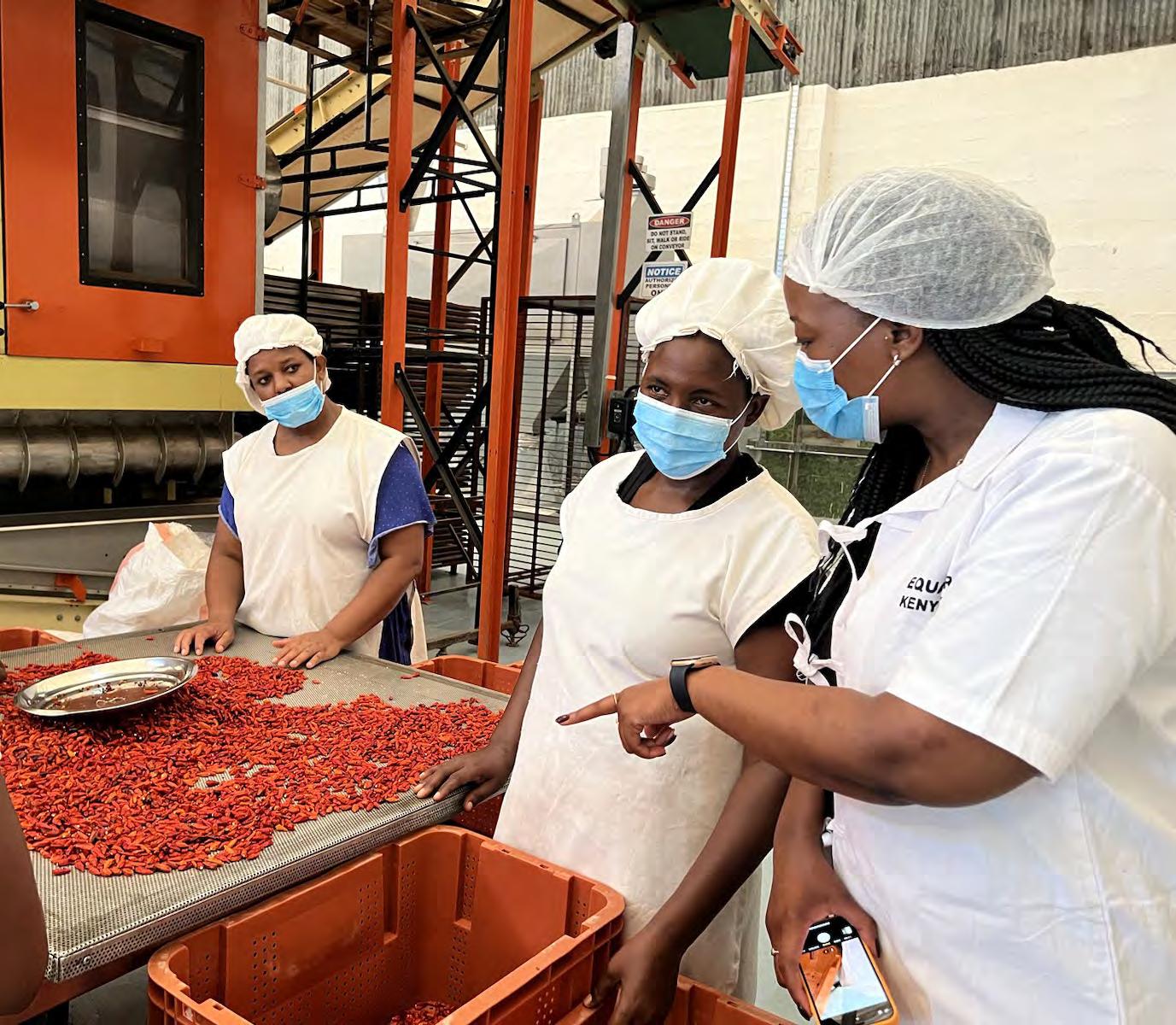
The Programme Responsible Owner Ms. Brenda Odallo engages with workers in SUED’s supported Chilli Processing Plant in Malindi Municipality. She learns from them how the programme has ensured their continual employment and largely impacted their family incomes.
SUED has worked with Lamu County to ensure that it gets its first ever processing plant. By having a factory domiciled in Lamu, we can now ensure that our farmers don’t suffer losses through long distance transportation of cashews. This strategic introduction of a processing facility in Lamu signals to other potential investors that Lamu is open for business. ”
Lamu Governor, H.E. Issa Timamy
SUED is driving transformational change in Kenya’s secondary towns/municipalities/intermediary cities by harnessing their urban potential to ensure that they are engines of inclusive and climate friendly economic development.
The UK Government is committed to working closely with Kenyan Municipalities to prioritise economic growth that is driven by greater economic diversification and deeper and wider market systems that promote strong climate resilient and bankable value chain projects. To do this, the UK Government is funding the Sustainable Urban Economic Development Programme to work with 12 municipalities in Kenya. These include Lake Region Economic Bloc – Bungoma and Kisii, North Rift Economic Bloc – Eldoret and Iten, Frontier Counties Development Council – Mandera and Isiolo, Mt. Kenya and Aberdares Region Economic Growth – Kathwana and Kerugoya/Kutus, South Eastern Economic Bloc – Kitui and Wote, Jumuiya Ya Kaunti Za Pwani – Malindi and Lamu. The programme is working with 10 of them to attract investors.
The seven- year £43 million programme supports Kenya’s intermediary cities to employ a comprehensive approach to attract inward investment into climate resilient infrastructure and value chain projects, thereby encouraging business development to boost the local economy, provide new work opportunities for residents and improve the quality of life of municipal residents.
The programme has worked closely with these municipalities to implement a structured investment approach that attracts capital investments, incentivises business to relocate to these municipalities and create employment opportunities.
By implementing a new disruptive methodology in working with the private and the public sector SUED is strengthening the competitiveness of the municipalities. SUED believes that municipalities have the greatest opportunity and ability to promote economic development and there is need to work with them to advocate for raising substantial investment into participatory, integrated and sustainable market systems.
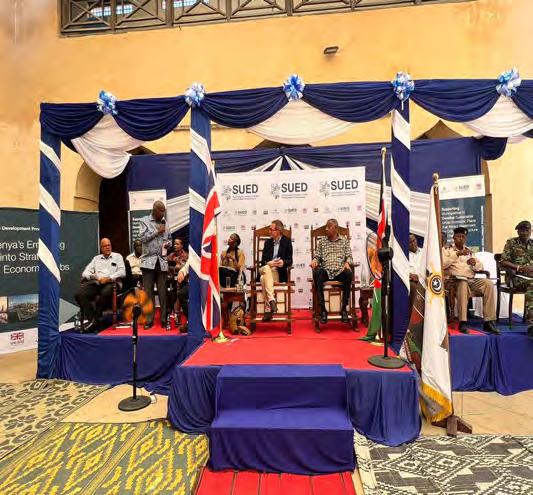
The British High Commissioner, H.E. Neil Wigan, the Lamu County Governor H.E. Issa Timamy listen to the Equatorial Nut Processors Chairman Mr. Peter Munga talk about ENPs partnership with SUED to set up Lamu’s first ever processing plant.
The programme utilises a three-step approach in its implementation.
2
3
Seed Fund: The programme has in place a seed fund to equitably fund projects that have been identified in the UEP and have been prioritised for further assessment in the investment attraction phase to ensure that they are economically viable. These projects are incentivised to increase the private sector’s investor confidence. 1
Developing an Urban Economic Plan:At the onset, the programme worked with municipal and county staff to design a responsive Urban Economic Plan (UEP) that integrates market-based approaches helping the municipalities to identify viable value chain projects and supporting climate-resilient infrastructure that will help actualise the economic potential of the municipality.
Technical Assistance to Actualise the Plan:
Once the municipality has formally adopted the UEP, the programme provides additional technical assistance to ensure that the plan is investor-friendly and attracts investors. To ensure that the municipal and county team implement the recommendations of the UEP, the programme ensures that its support includes a strong capacity building component that aims at building good governance systems and technical competencies for effective management of urban services to sustain SUED’s initiatives beyond the programme’s life span.
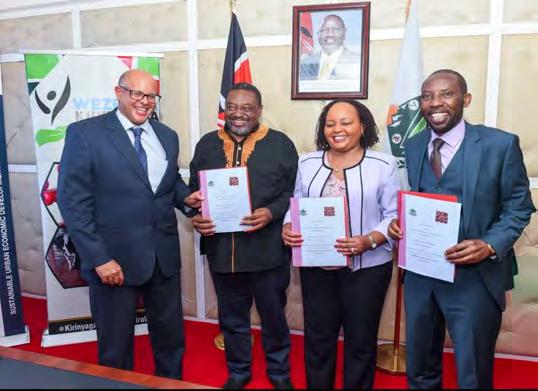
H.E. Anne Waiguru, Governor Kirinyaga County together with her Deputy David Githanda celebrate with Wakiiba Investment Limited Board Secretary Kivutha Kibuga and SUED’s Team Leader John Kashangaki the signing of the Letter of Understanding between the County and Wakiiba to signify the kickstarting of the £1.950m~ (Ksh371m) Integrated Tomato Processing Plant Project

Products CEO
Through an integrated approach that is demand-driven, working with both public and private actors, SUED key goals are:
Inclusive economic growth and poverty reduction in supported municipalities and the respective counties that they are embedded in
Increased investment in selected municipalities including investments in climate-resilient infrastructure and value chain projects.
SUED is managed by Tetra Tech International Development. Tetra Tech provides programme management, technical oversight, and coordinates implementation of activities by the subcontractors that comprise of:
WS Atkins Global – The Atkins Team developed 12 UEPs. The plans identify the economic sectors that the municipalities need to harness to achieve the potential of their urban areas as engines of inclusive and climate resilient growth and positive social change.
Open Capital Advisors, KPMG and KCIC: These investment attraction firms utilise the developed UEPs to promote the project identified to attract investors. Their work is geared towards attracting public-private investment in infrastructure and value chain projects in supported municipalities.
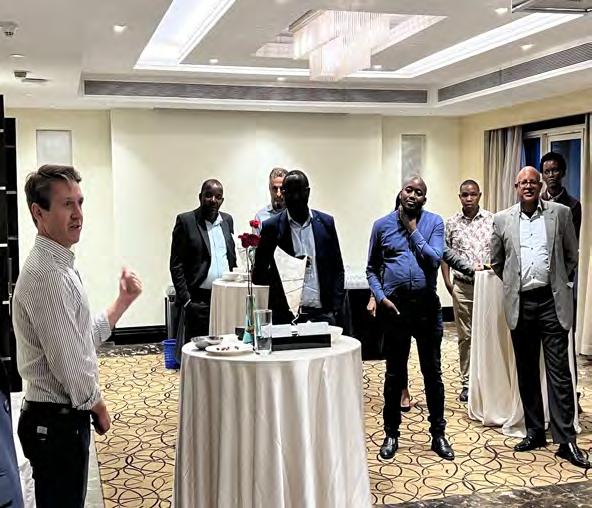
Kathwana
UEP Developed and Adopted
Eldoret
UEP Developed and Adopted, 2 deals signed and 1 deal under development in the Investment Attraction Phase
UEP Developed, Adopted and Publicly Launched, 1 deal signed and 1deal under development in the Investment Attraction Phase
Bungoma
UEP Developed and Adopted
Kisii
UEP Developed, Adopted and Publicly Launched, 2 deal signed and 1 deal under development in the Investment Attraction Phase
Wote
UEP Developed and Adopted, 3 deals under development in the Investment Attraction Phase
UEP developed and publicly launched, 1 deal signed in the Investment Attraction Phase
UEP Developed and Adopted, 2 deals signed and 1 deal under development in the Investment Attraction Phase
Mandera
UEP Developed Completed and Adopted
Kitui
UEP Developed and Adopted
Lamu
UEP Developed and Adopted,3 deals signed and 2 deals under development in the Investment Attraction Phase
Malindi
UEP Developed, Adopted and Publicly Launched, 3 deals closed in the Investment Attraction Phase
Capacity Building: All municipalities have continued to receive capacity building support through the investment attraction process. This has entailed a series of trainings on financing sustainable urban development projects.
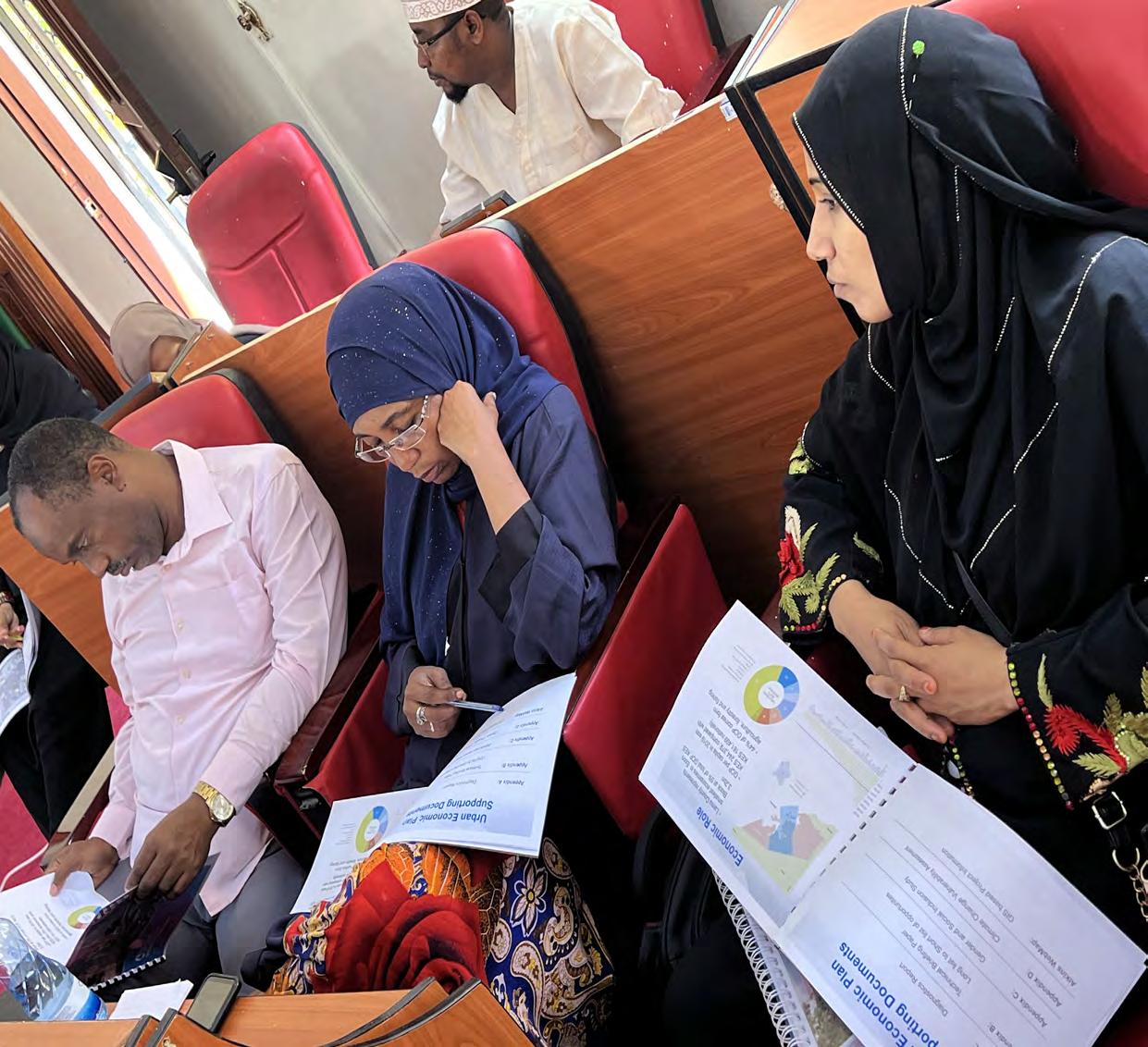
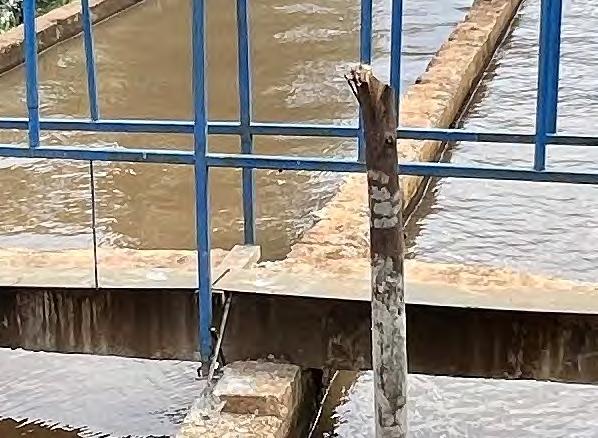
Board Members in Lamu County provide stakeholder input into the development of the UEP to ensure that the wider considerations are incorporated
All Municipalities now have an integrated interdisciplinary approach to planning for economic growth ”
Following a market-based approach, SUED working closely with its supported municipalities developed Urban Economic Plans (UEPs) to provide a holistic development plan identifying and prioritising climate resilient infrastructure projects and value chain opportunities that can help promote economic growth, maximise economic potential and support sustainable urbanisation in the selected towns and municipalities.
The UEP is an advisory document that builds on existing work and priorities identified under various respective county governments’ integrated development plans, spatial plans and urban development plans. The UEPs ensure that there is a economic focused plan that provides an inclusive economic strategy.
The Purpose of the UEP is to:
• Provide an inclusive economic strategy that can guide future development towards increasing prosperity in municipalities
• Prioritise economy activities and climate resilient infrastructure that can maximise benefits and support the development of a sustainable economic future for municipalities
• Bring together stakeholders on deciding the economic future of LM and implementing it; and
• Identify and prepare value chain (VC) projects that can be considered further in terms of their feasibility and bankability for funding by the private sector
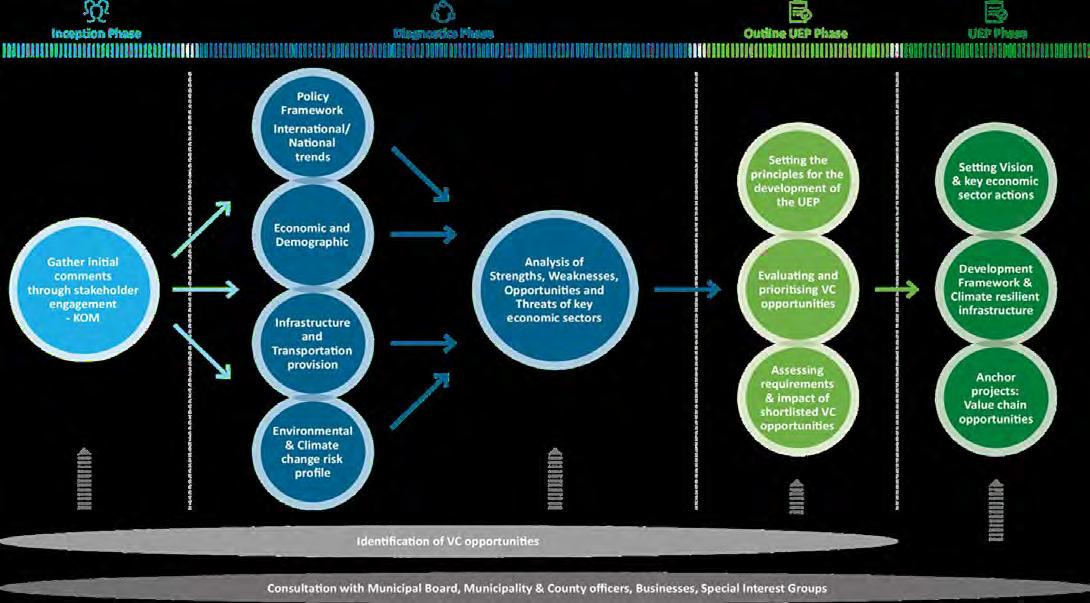
Prioritisation of Municipal Specific UEPs recommendations into Municipal Implementation Plans - Lamu County
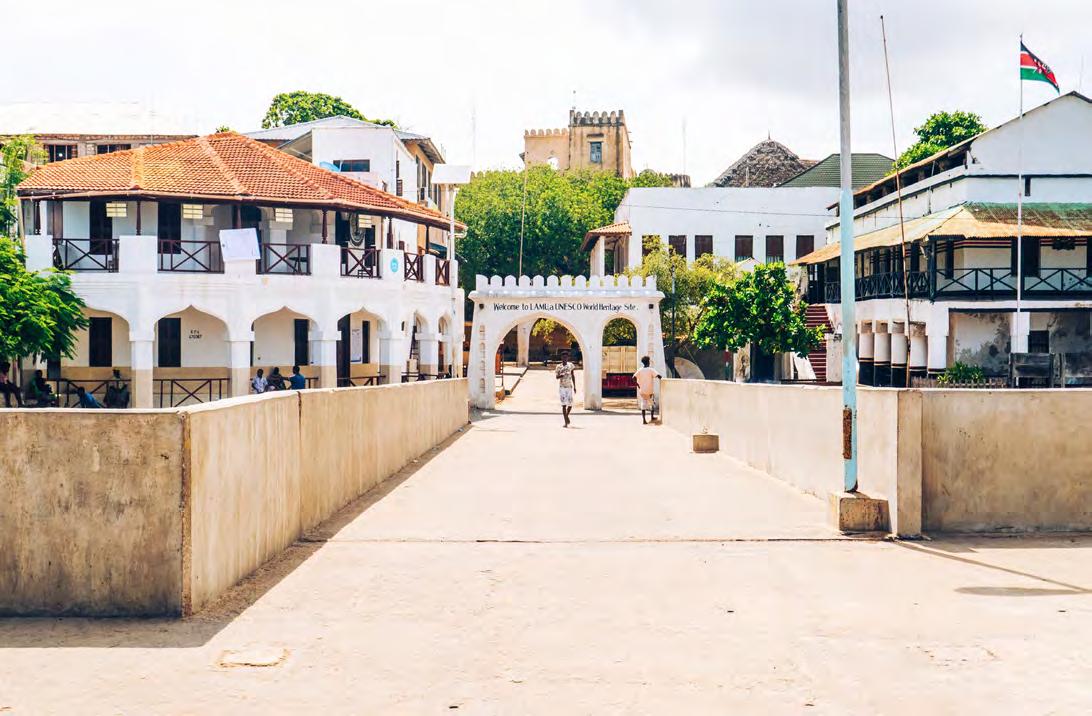
Lamu’s UEP recommended that the municipal and county leadership prioritises the replacement of Lamu Town’s two open dumpsites with a NEMA standard new engineered sanitary site. The UEP highlighted the importance of having landfill sites away from sensitive places such as residential areas and schools and ensuring that they are in places that will not constrain development.
Lamu Municipality prioritised the waste management project by funding the construction of two trash pits and purchasing logistical supplies such as tractors, trailers and motorbikes at an estimated cost of Kes 13.6M (£83.9K).
“SUED’s support continues to be one that we reference as we identify which project we can fund. The UEP is always on my desk for me to look at and see what project should be prioritised when developing our annual plan” Shared Ahmed Kombo, Lamu Municipality’s Municipal Principal Administrator.

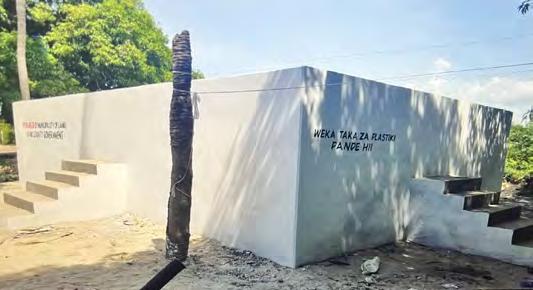
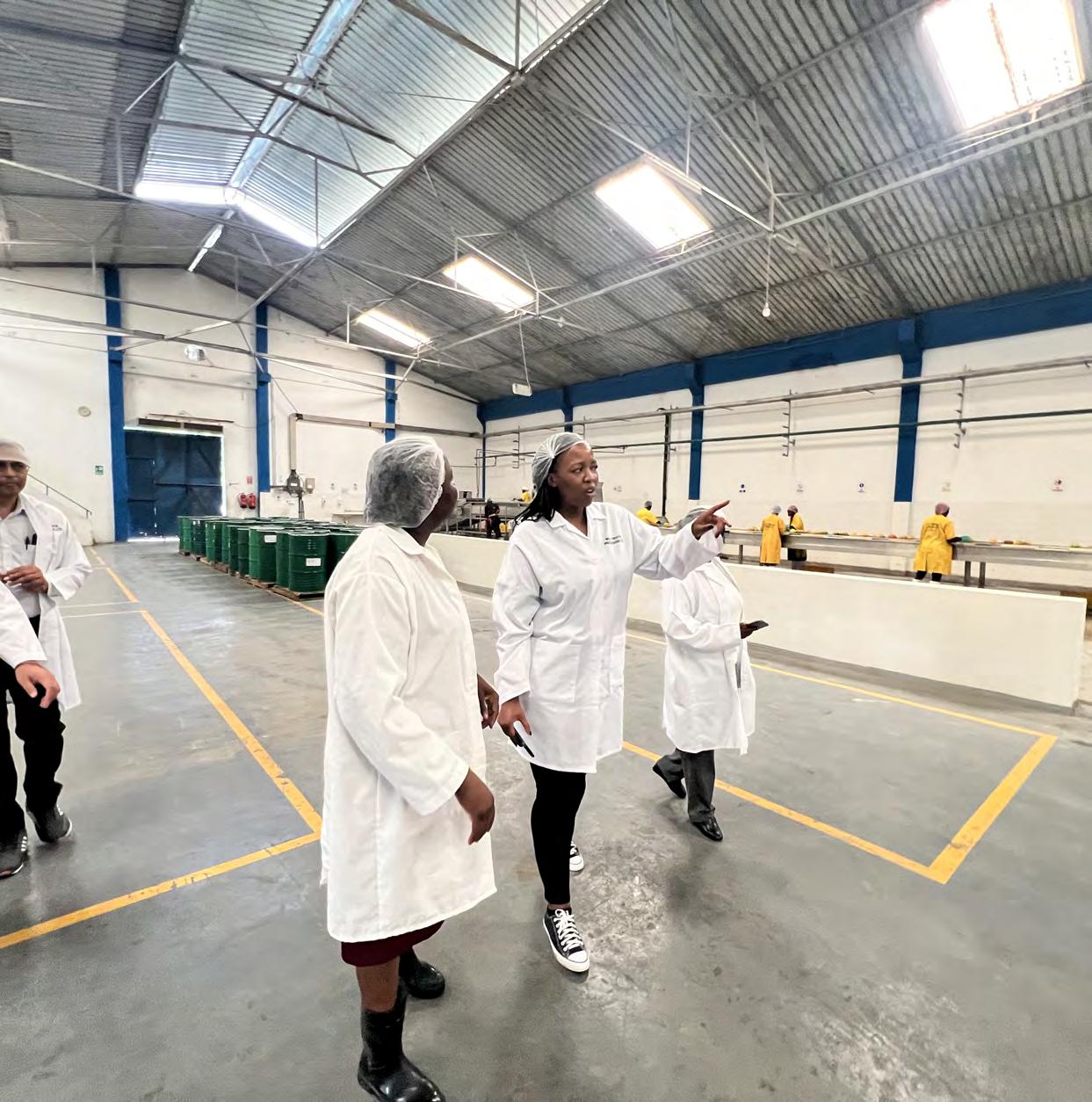
SUED’s Programme Responsible Owner
The UK Government through SUED is prioritising the importance of bringing investors to municipalities. This not only impacts the urban centers and make them more economically resilient but directly impacts the nation as a whole. Having local investors seize economic opportunities and amplify them and create jobs not only resonates with the leadership but demonstrates to the residents the economic potential their activities”
Kenya has had in place a decentralised approach to governance for almost 15 years that has put in place various legal and institutional frameworks that determine the functional responsibilities and fiscal powers of its intermediary cities. However there has been a lack of institutional incentive and support to take advantage of their unique economic offerings to advance their development. While their financial advancement is hinged on their propensity to attract inward investment into sectors that will champion their connectivity with the broader national economy, their structuring creates a hinderance to this.
To expand their economy, Kenyan intermediary cities need to increase their access to financial resources while growing their revenue source. Additionally, innovation is needed to attract outside investment that will go beyond the national allocation that they currently rely on to meet their recurrent and capital expenditure costs. Working closely with the private sector to increase their active participation in growing the economies of these intermediary cities is hampered by inefficiency in the structuring and management of Public-Private Partnerships (PPPs). Further, the leadership of these intermediary cities lack the bargaining power to effectively negotiate with the private sector by struggling to make offers attractive to them.
Most of Kenya’s intermediary cities are the metropolitan agglomerate of their region increasing their impact potential if they successful implement measures that foster their economic growth and prioritise sustainable development. The recent devolvement of power and responsibility to the local leadership has resulted in a steep learning curve on how to best adopt decentralization policies and customise them to meet the demand of their populace. As these new intermediary cities take on more functions, increase their revenue sources and gradually gain greater autonomy with regards to expenditure the
need to strengthen their collaboration with the private sector becomes imperative. To become successful in attracting private businesses and investment there is need to have them learn how to champion their natural or cultural resource endowment and proactively share their competitive advantage to see their economies expanding.
Much consideration is needed to ensure that even as economic expansion is sought, the leadership in these intermediary cities prioritise how they will manage this urban growth to ensure equitable development. Additionally, there need to be a strong steer towards diversifying the sectors in which the private sector engages in order to protect the intermediary city from heavy reliance on one industry which would precariously increase their vulnerability to economic fluctuations.
The Sustainable Urban Economic Development Programme (SUED) funded by the UK Government has worked closely with 12 intermediary cities in Kenya to build their capacity to develop the technical and managerial ability to partner with the private sector to invest in opportunities that promote the economic development of their urban centres based on their unique offering.
Urban Economic Planning: The programme combined local knowledge and international best practices to help the supported intermediary cities to develop Urban Economic Plans (UEPs). The UEPs introduced an integrated multi-disciplinary approach to planning for economic growth and advocated for the maximization of agglomeration of economies. In partnership with the intermediary cities, SUED helped them identify climateresilient value chain projects that have strong value-addition potential. By having deepdive sessions with the leadership on the
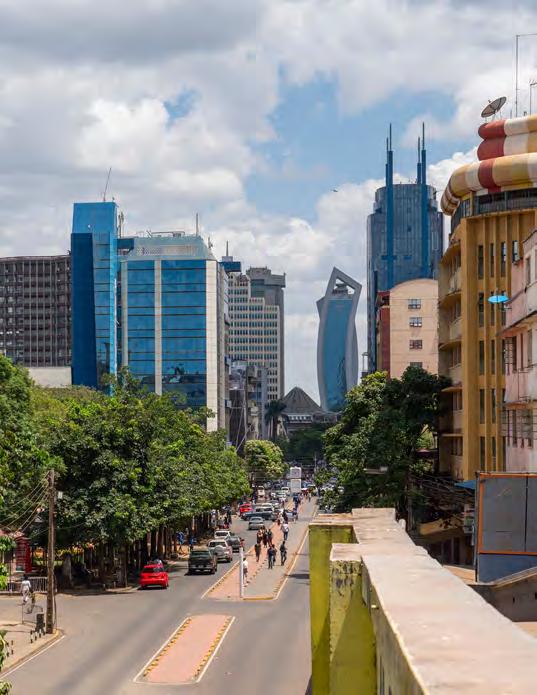
intermediary cities’ competitiveness, SUED has been able to help them identify which value chain and infrastructure projects have the most production potential that synergise the economic opportunities they have.
Capacity Building: To promote local economic development that is driven towards sustained economic growth, which is owned by local stakeholders, SUED has worked closely with the leadership of the intermediary cities to help them respond to their increased delegated roles. The programme has provided in-person trainings, on-the job trainings, continuous education sessions as well as mentorship to various city managers to help them define the economic vision of their intermediary cities. In doing so the programme has supported them to identify policies and regulations that they need to strengthen to draw in investments for value chain and climate-resilient infrastructure projects.
Investment Attraction: The programme worked closely with city mangers in supported intermediary cities to attract investment into selected climate-resilient value chain and infrastructure projects through a multi-step process:
First the programme utilised the UEPs to identify the most viable sectors in the intermediary cities and applied a screening criterion to determine which value chain and infrastructure projects would progress to the pre-feasibility study phase of the investment attraction process. The project screening and selection phase shortlisted the most feasible projects for investment with three projects per municipality finally selected, comprising a mix of value chain and infrastructure projects.
Second, SUED conducted pre-feasibility studies to assess the viability of the selected projects in detail to gain a deeper understanding of the operating environment and determine their viability and impact potential as well as capability to attract investors.
Third, the programme prioritised investor outreach and identification utilising market sounding to determine the appropriate investor and engaging with them to introduce the projects and determine their appetite for the investment in the intermediary cities.
Fourth: SUED provided a seed fund for the selected projects. SUED’s seed fund is demand-led and provides an incentive for investors to catalyse the investment and derisk the projects. SUED worked closely with the investors to determine the need, amount and use of the seed capital for the projects.
SUED’s multi-pronged approach is going beyond helping the intermediary cities to develop viable urban economic strategies but ensuring that they are able to actualise them. The local-level leaders are now able to drive inclusive economic growth that is geared towards local financial resilience that ensures stronger intermediary cities that contribute to an economically stronger regional economy that form founding blocs on an economically vibrant and diverse Kenya.
The programme has successfully drawn in investments worth £63.5 million in public and private sector investment with 11 deals signed.
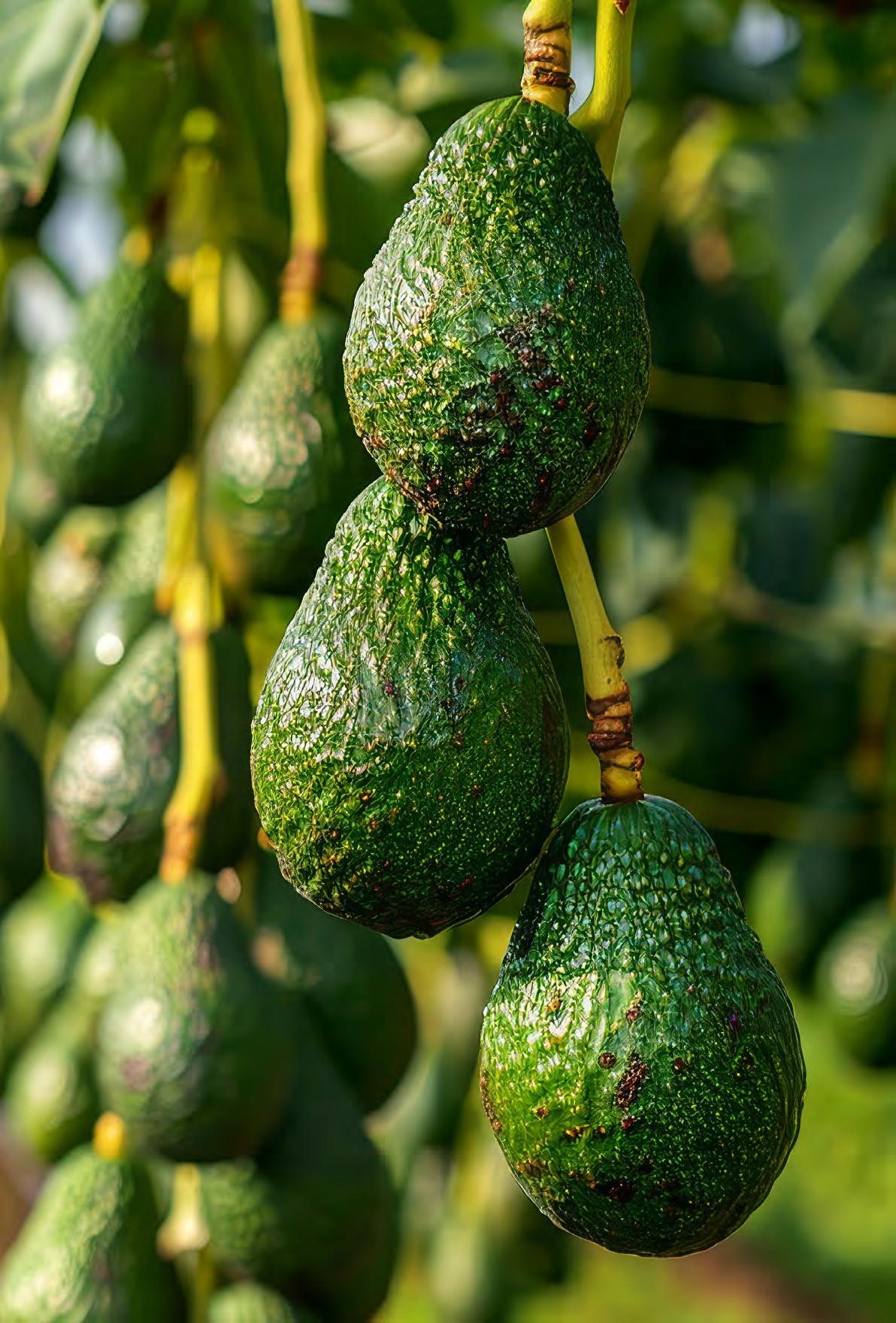
Total Funding Raised: £2,576,965
• Investor contribution: £2,107,160
• SUED Seed fund contribution: £469,805
Beneficiary Population: The project will mainly benefit avocado farmers in Kisii and neighbouring counties, and other participants in the value chain such as transporters.
Expected Jobs to be Created: The project is expected to generate 1,195 jobs. These comprise 95 direct full-time equivalent jobs for the day-to-day operations; approximately 1,000 farmers will benefit through a ready market for their products, with this number expected to increase to 3,000 in the medium to long term; and 100 induced jobs are expected to be generated because of the project being implemented.
Expected Impact: Climate resilience: Approximately 3,000 people will be prepared to respond effectively to the impacts of climate change.
Avocado trees present multiple benefits to the environment, sustainable land management and climate change regulation. The growing of avocado trees in Kisii is being undertaken as agroforestry which enhances biodiversity
and soil fertility, together with diversified food production. Therefore, increased avocado tree planting and growing, combined with good agricultural practices, will result in strengthened resilience.
In addition, prompt delivery of the harvest to the aggregation centres by farmers will reduce the risk of avocado damage and post-harvest losses. Farmers will deliver their avocados to the nearest aggregation centre for collection in bulk by trucks operated by Avofresh Processors Limited. The aggregation centres will be set up across the wards where avocado growing is undertaken.
A suitable circular economy model will be adopted in the Kisii plant. Extraction of oil from avocado will result in organic waste that will be utilised as raw material for other value products. These include manure, animal feed or waste-toenergy generation.
Gender and social inclusion: Women are the main avocado producers in Kisii and predominantly sell in local markets to other retailers and to brokers. Of the 3,200 members in the Kisii Avocado Cooperative, 60% are women. The avocado oil processing plant provides an additional avenue for income generation for these women.

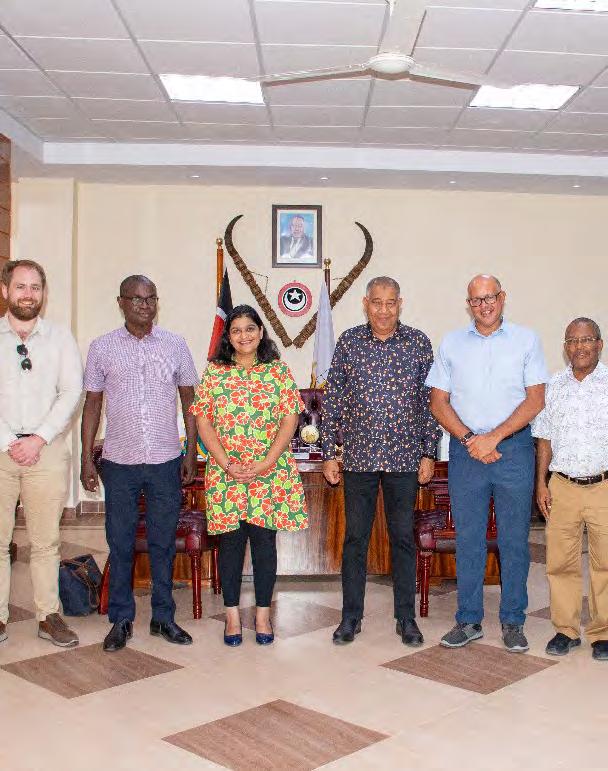
The Lamu Governor H.E. Issa Timamy is introduced by SUED’s Team Leader John Kashangaki to the leadership of Thika Cotton Mills to signify the kick off of the Cotton Ginning Project

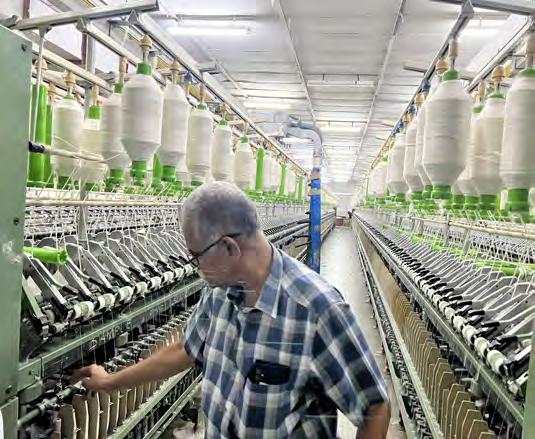
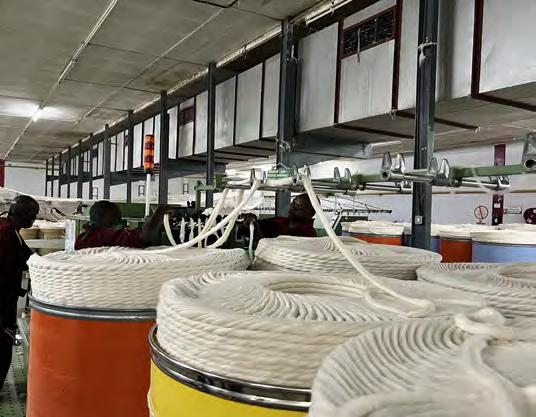
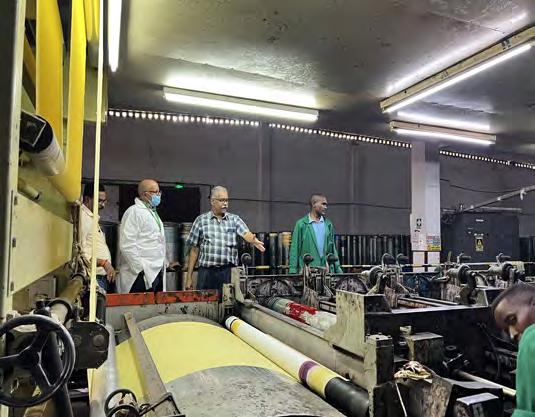
The UK Government through its Sustainable Urban Economic Development Programme (SUED) is working with Thika Cotton Mills Ltd (TCM) to establish a cotton ginning plant in Lamu Municipality, Lamu County. The facility will specialise in ginning and will include the extraction of cottonseed oil, generating valuable by-products such as cottonseed cake for animal feed. SUED’s support will enable the facility to process up to 2,000 metric tons by its third year. The construction of the ginning plant will translate to better prices per kilogram for cotton farmers increasing household incomes in Lamu.
TCM is investing £2.068.5M~ (Ksh 338.7m) into the project to set up the operations in Kisii. The UK Government has played a key role in unlocking this investment by proving technical assistance in the deal structuring as well as providing £514k~ (Kes 84.1m) in seed fund support. The project will create 80 direct jobs and work with 15,000 famers. The project will ensure circularity by upcycling ginning byproducts like seed into high value cottonseed oil and animal feed, fostering sustainability and resource efficiency.
The project will also work with farmers to promote climate-smart agriculture like conservation agriculture and agroforestry to enhance productivity and climate resilience among farmers.

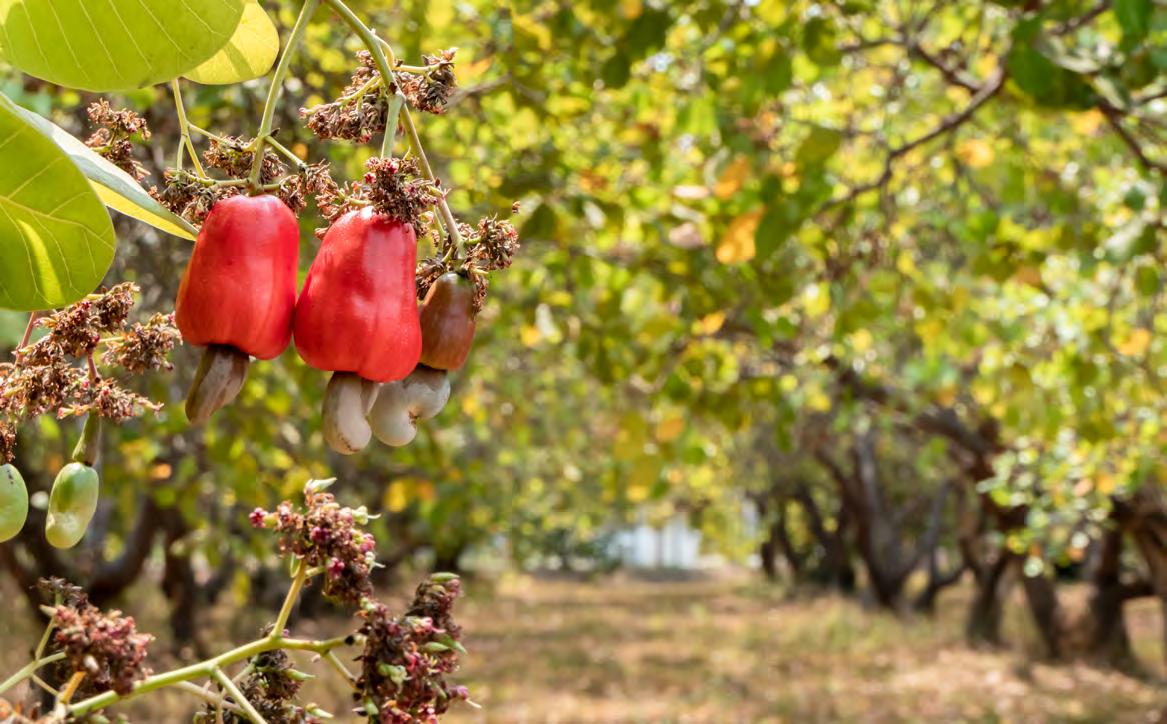
The Cashew Value chain sector in Kenya has the huge potential to evolve into a large, export-oriented sector due to its tree crop being well suited to the variables of weather in which its planted. Currently cashew nut farming is a major cash crop in coastal Kenya where more than 70,000 smallholder farmers produce the nuts. The nuts are predominantly grown in Kwale, Kilifi, Tana River, Mombasa and Lamu Counties with the industry employing 4,000 people and 50,000 people indirectly3. Globally, more than 60% of Raw Cashew Nuts (RCNs) come from Africa yet less than 10% is processed within. The weak processing capabilities that Sub-Saharan countries have reduce the prospects of value addition and result in local African economies receiving a tiny proportion of the value created by the sector. In Kenya, the lack of processing facilities has made farmers depend
on middlemen who often offer low prices and irregular payments leading to a decline in production over the years. Low farm gate prices for cashew have contributed towards the reduced interest by the farming community in the cashew growing zone. Widespread tree felling for supply of firewood for domestic and industrial use are a major threat to the existing tree populations overshadowing the ongoing
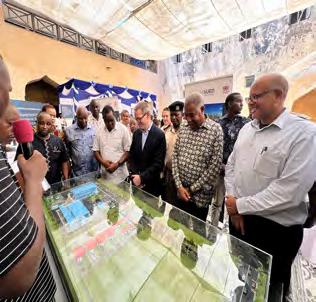
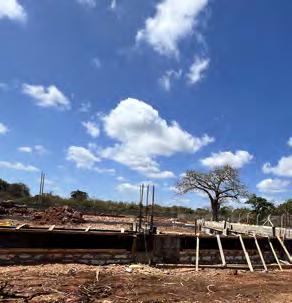
replanting initiatives. The total production reduced from 12,801 tonnes reported in 2020 to 9121 tonnes recorded in 20214.
With support from the UK Government through the Sustainable Urban Economic Development Programme (SUED), Lamu Municipality is being supported to address these challenges. The programme is working with Lamu Municipality to address the lack of significant industries that can drive its economic growth. With major cashew nut growing areas across the wider county which have the potential to produce more than 15,000 ton of raw nuts annually there is need for a collaborative effort between the county and a private sector player to address the challenges facing the industry in Lamu. To assist with the this, the programme has partnered with Equatorial Nut Processors (ENP) to establish a cashew nut processing plant in Lamu Municipality with a focus on producing Raw Cashew Nuts (RCN) and roasted/salted kernels. The main target market for these products will primarily be local sales, with any surplus quantities being exported. The processing plant will involve cashew shelling, drying, roasting, salting and packing as well as the exploration of harvesting cashew nutshell liquid which has a wide range of industrial applications. SUED’s partnership with ENP will see the factory process 142MT of raw cashew in the first year increasing to 3,500MT within 5 years. To support the establishment of the plant, the County has provided 5 acres of land on a subsidised 50-year leasehold. By having the processing plant close to the farms, the transportation costs will be greatly reduced increasing the prices that are offered to farmers resulting in better household incomes for the people of Lamu.
SUED catalysed £1.775 million (~Kes340m) in funding to set up the operations in Lamu, the programme has providing technical assistance to the private firm and the county to ensure that collaboration between them is prioritised to see the fruition of the project. SUED has also provided £488k (~93.37m) in seed fund support to support the construction and equipment purchase. In its first year of operation, the plant will provide 120 direct jobs who will assist in the processing and packaging of the RCNs. In addition, the plant will create 240 induced jobs
and impact over 1500 farmers who will benefit from the improved prices, this will gradually increase to 7,000 farmers in 5 years. The facility will also utilise plant waste as an energy source to promote circularity. Together with the County, ENP will promote climate-smart agriculture practices like conservation agriculture and agroforestry to enhance productivity and climate resilience among the farmers.
This introduction of a medium scale processing facility in Lamu has the potential to serve as a catalyst for further investments in the region, leading to the creation of sustainable employment opportunities, increased productivity, and commercial activity.

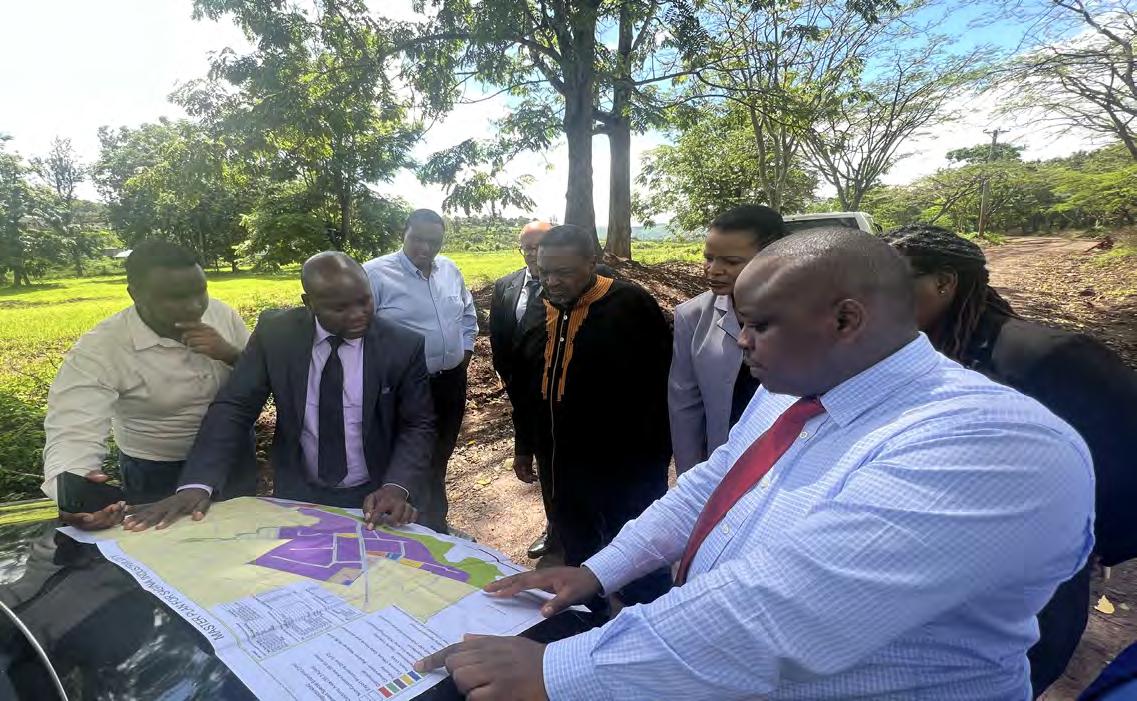
Kenya is a major exporter of raw and processed fruits and vegetables with its export growing steadily in recent years. The agricultural sector generates a significant income for small-scale farmers who heavily contribute to Kenya’s food security. As such, the Kenyan Government prioritises its support for the sector and has invested in infrastructure and research to improve production and quality. In addition, the Government has created export incentives, such as duty-free access to certain markets and has developed marketing campaigns to promote Kenyan produce overseas. With
agriculture being the backbone of the Kenyan economy, contributing approximately 20% of Kenya’s GDP it remains the Country’s third largest foreign exchange earner. The sector still has a lot of export potential with only 4% of its production being exported. An increase in exports would benefit small scale farmers who produce over 90% of what’s grown and would increase their income as well as safeguard their livelihood.
The global tomato processing market is increasing as a result of existing businesses
seeking to utilise the large supply of fresh tomatoes to meet the demand of the consumer market that is demanding other products such as sauces, juices, paste and ketchup in addition to the demand for fresh and processed tomatoes. In Kenya, the tomato processing industry is mainly composed of small and medium-sized enterprises that use manual or semi-automated processes. The sector has in previous years experienced sector-specific challenges such as limited access to financing, inadequate infrastructure and limited technical expertise. As the leading vegetable produced in Kenya, the sector is largely fragmented and heavily reliant on rainfall which can be erratic and can lead to crop failures.
In Kirinyaga, agriculture is the largest contributing sector to the County’s economy with tomato production accounting for the second largest contributor to Kenya’s tomato produce. Out of 20 wards, 19 of them produce tomatoes, which are mainly planted on small scale and medium scale by 85% of the farmers. The county is the most productive area for tomato production due to the presence of many rivers which allow farmers to practice irrigation farming. In Kerugoya the adoption of good cultural practices along with the high demand for tomatoes is driving the market for both fresh and processes tomatoes.
However, the progress is hindered by the lack of proper infrastructure, in adequate transport systems and poor storage facilities, which make it difficult for farmers to transport their produce to processing plants resulting in postharvest losses. Additionally, most farmers and processors in Kirinyaga struggle to access affordable financing to support operations activities which hinder their capability to invest in modern equipment and technology that can help them improve processing efficiency and reduce waste. Further, the inefficient supply chain due to poor coordination between farmers, processors, and retailers results in inadequate supply and demand management which leads to further losses for the farmers.
To assist farmers to increase their production capacity to meet the demand for processed tomato in local and international markets, the UK funded Sustainable Urban Economic
Development Programme (SUED), is supporting Wakiba Investments Limited to establish an integrated tomato processing facility in Kerugoya-Kutus Municipality in Kirinyaga County.
The facility will process tomatoes into three key products; tomato paste tomato sauce and tomato juice. The facility is a response to the farmers who have in recent years experienced post-harvest losses due to the lack of a ready market during peak season. In addition, the processing facility will have a cold chain facility which will maintain the quality and safety of the tomatoes.
Wakiba is investing £1.462m (Ksh 278m) into the project to set up the operations in Kerugoya and source tomatoes from the small scale and medium scale farmers in Kirinyaga County and wider Central Region Economic Bloc. The UK Government through SUED played a key role in unlocking this investment by providing technical assistance in the structuring of the deal and carrying out-prefeasibility studies as well as by providing £487.5K (93.37m) in seed fund support. Wakiba is working closely with the County to begin to provide technical support to the farmers by highlighting to them the best farming techniques for tomato farming as well as sharing with them the required seed for tomatoes that will ensure they get the highest grade and quality of tomatoes to ensure adherence to the export market.
Once complete the processing facility will have the capacity to process 16 tonnes of tomatoes per day with the production rate being sustained through the establishment of a reliable and sustainable supply chain with local and regional farmers. The facility will prioritise the inclusion of a captive cold chain facility. This is instrumental in maintaining the tomatoes’ quality, freshness and safety from harvest to processing. By controlling the temperature and humidity of the produce, they will be in optimal condition when being produced ensuring that the quality standards are maintained.
To ensure the facility receives a continuous supply of tomatoes, the processing plant along with the County will provide extension services to farmers. The extension services
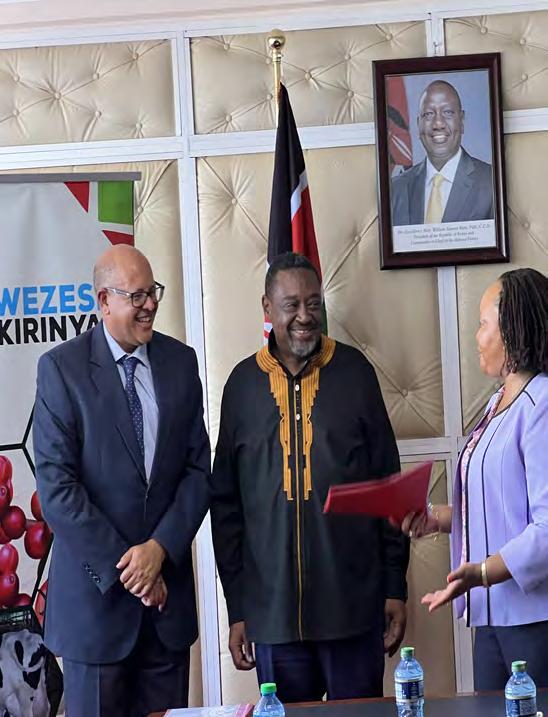
will provide guidance and training on best agricultural practices, covering aspects such as seed selection, crop management, pest control and post-harvest handling. In empowering the farmers with the necessary knowledge, the quality of tomatoes that they produce is enhanced. Working closely with farmers ensures that as they begin to integrate best agricultural practices, they are able to promote soil health as well as prioritise water conservation. These combined efforts will lead to enhanced agricultural productivity and longterm profitability for farmers increasing their incomes across the years.
With SUED’s support, the establishment of the tomato processing plant represents a transformative approach towards the enhancement of the tomato value chain in the region. The combined unique sourcing strategy, cold chain facility, extension services and commitment to sustainable practices will positively impact the lives of the farmers and the local community. In working with the local county Government to bring in agri-business, SUED is advancing the regions prosperous and sustainable future.

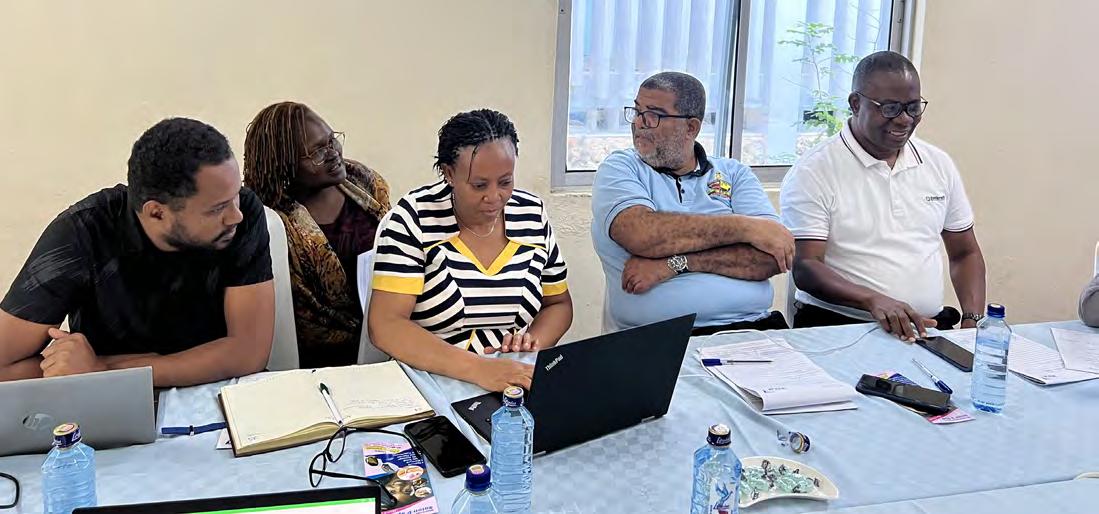
Lamu County and Kilifi County participants participate
group work identify their level of climate resilience at the municipal level, county institutional knowledge and the impact on their urban areas.
Intermediary cities in Sub-Saharan Africa have vulnerable urban systems that make their populations more susceptible to external shocks and stresses, including climate change. These cities lack the necessary infrastructure to reduce exposure to hazards or adapt to and respond to the direct impacts of climate change. As a result, populations in these cities are at a higher risk of being negatively affected by environmental challenges.
To better understand the direct and indirect impacts of climate change on urban areas in Kenya, the UK Government funded Sustainable Urban Economic Development Programme (SUED) undertook a capacity needs assessment in 10 municipalities to
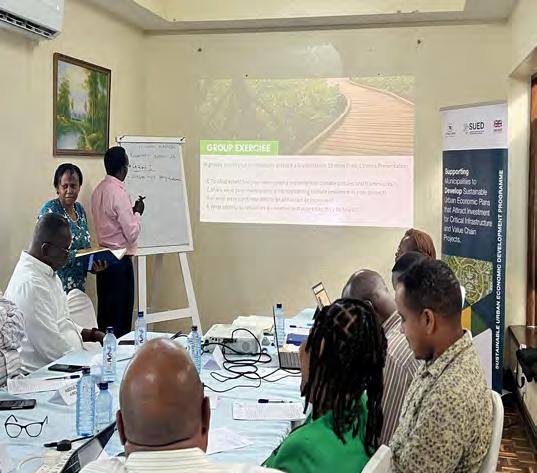
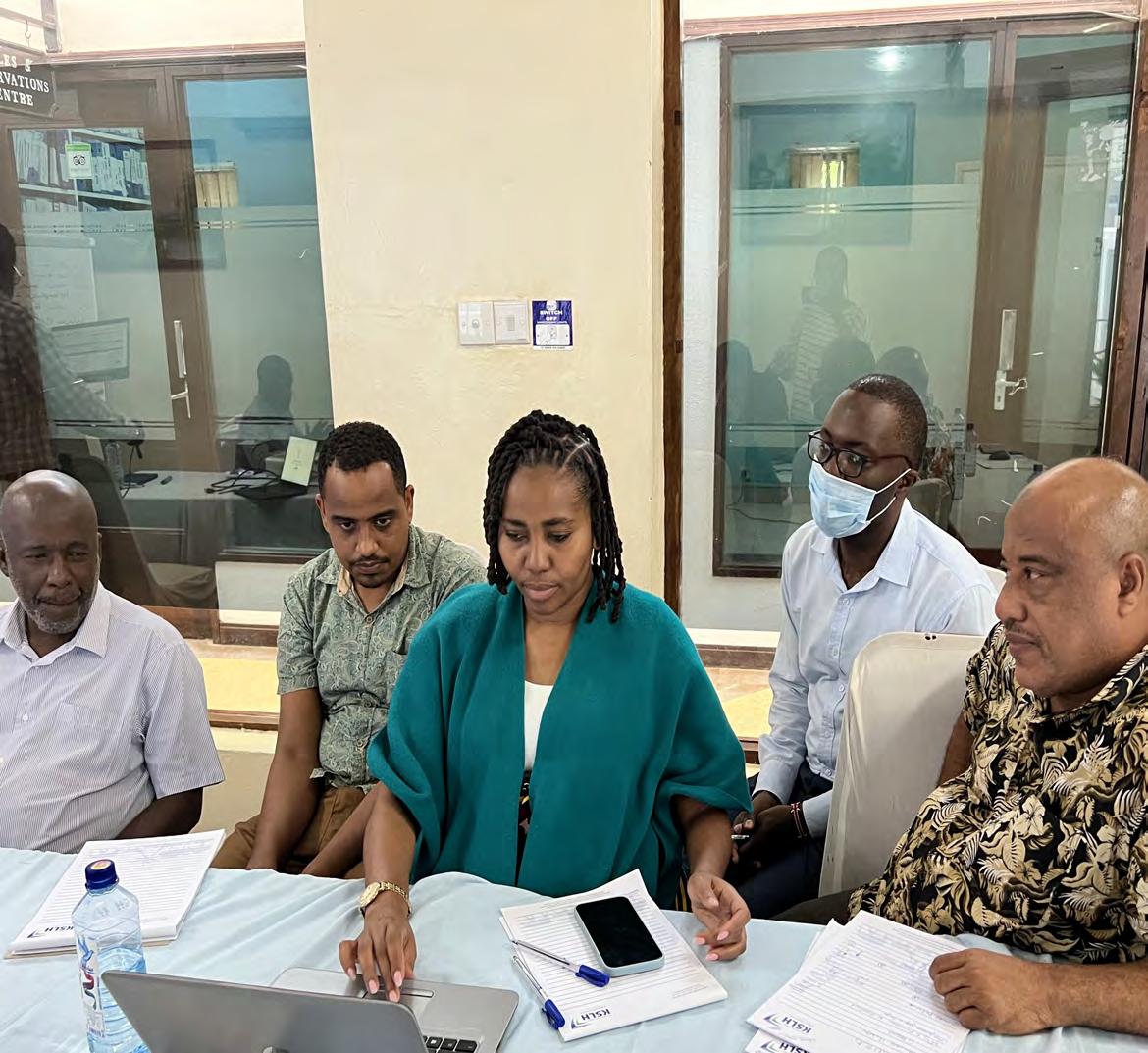
The Capacity needs assessment identified organisational, institutional, and individual gaps affecting the conceptualisation and implementation of climate change programmes and projects. Specifically, Municipalities lacked the technical knowledge and capacity to advocate for climate policy and legal framework development and implementation; mainstreaming climate change in their municipal planning; and fundraising for climate change programmes and projects. To assist with capacitating the leadership in the intermediary cities, SUED designed a climate financing training that was aimed at equipping the municipal leadership with the
knowledge, skills, and tools necessary to enhance finance sustainable urban economic projects while ensuring that climate resilience is mainstreamed. The training aimed at empowering municipalities to effectively plan, finance, implement, and manage projects that promote economic growth while considering climate change impacts and ensuring inclusive and sustainable development.
It was imperative that the municipal and county technical team gained the knowledge and skills to utilise a framework for planning, accessing, monitoring and evaluating as well as reporting on climate financing for municipal and county
projects. In addition, the intermediary cities leaders needed to familiarise themselves with the existing climate and environmental policies at national and county level that they could then begin to proactively implement. In doing so, they would be able to develop bankable climate resilient proposals ensuring that they access financing for climate smart urban development projects.
SUED worked with the county and municipal leadership to select key staff who would receive the training on climate change to assist the intermediary city’s decision makers to prioritise future climate scenarios into their current decision making and climate proof their development projects. To preface the training the programme worked with the Counties and Municipalities to develop a climate financing framework for the municipalities that entailed analysing available sub-national climate financing frameworks available to determine which were the most replicable in the unique context of intermediary cities in Kenya. This resulted in the development of a municipal specific handbook. The handbook actively shows the municipal leadership how they can incorporate climate resilience and sustainable urban development in their governance and management structures.
It was key to not only train the municipalities on climate resilience in urban setting but to demonstrate to them how they could finance their sustainable urban economic development projects. With SUED support, the municipalities were able to identify the potential sources of financing urban projects including public, Private and international funding mechanisms. “SUED has not only worked closely with Kilifi County to bring in investors for critical climateresilient value chain projects but is helping us at the leadership level to see how we can expand the work they’ve done and begin to integrate climate resilience in our planning” shared Joshua Mazeras Kilifi County’s Economic Advisor.
The programme took the municipal and county leadership team through broad based topics on climate resilience and planning to ensure that they gain a deeper understanding of climate change risks and vulnerabilities
specific to their urban areas. This helped them determine how they would integrate climate resilience measures into their urban economic development projects. Some of the key climate-risks that they were currently facing were flooding, drought and extreme temperatures, the training helped them see how they would enhance the adaptive capacity of their communities. By providing them with methods in which they could employ various financing mechanisms, SUED has provided knowledge and tools that they will utilise to access various funding sources such as private-public partnerships, climate finance and green bonds enhancing their ability to attract investment and financial resources for their projects. “This training has opened our eyes to the available resources we can access to fund our climate-resilient projects to ensure that even as we develop our urban areas it’s done in a way that is resilient to future climate change”Mr. Ahmed Mohamed Ali – Chief Officer Natural Resources, Lands, Physical Planning and Urban Development shared.
By having the training clustered between municipalities, SUED was keen to increase the collaboration and knowledge sharing among them. Municipalities with similar topography were able to exchange the best practices that they’ve put in place to advance urban resilience as well as share what jointinitiatives they can collaborate on to achieve their sustainability goals. The training entailed a multi-approach that involves lecturing, group discussion, question and answer, and sharing of experiences and scenario planning. To ensure that there was active participation, the training widely utilised a participatory approach to understand the context of the counties and to guide them on how the concepts would be mainstreamed in their urban sustainable projects. In training policy and technical level officers from the county and municipality, SUED has ensured that the lessons learned will be integrated into the county and municipal plans. “We have learned how to work with our county leadership to ensure that we advance the linkages between climate resilience, economic development and urban systems in a way that ensures a sustainable future for our population” –Mr. Abduswamadu Abdalla Ali – Municipal Manager Lamu Municipality.
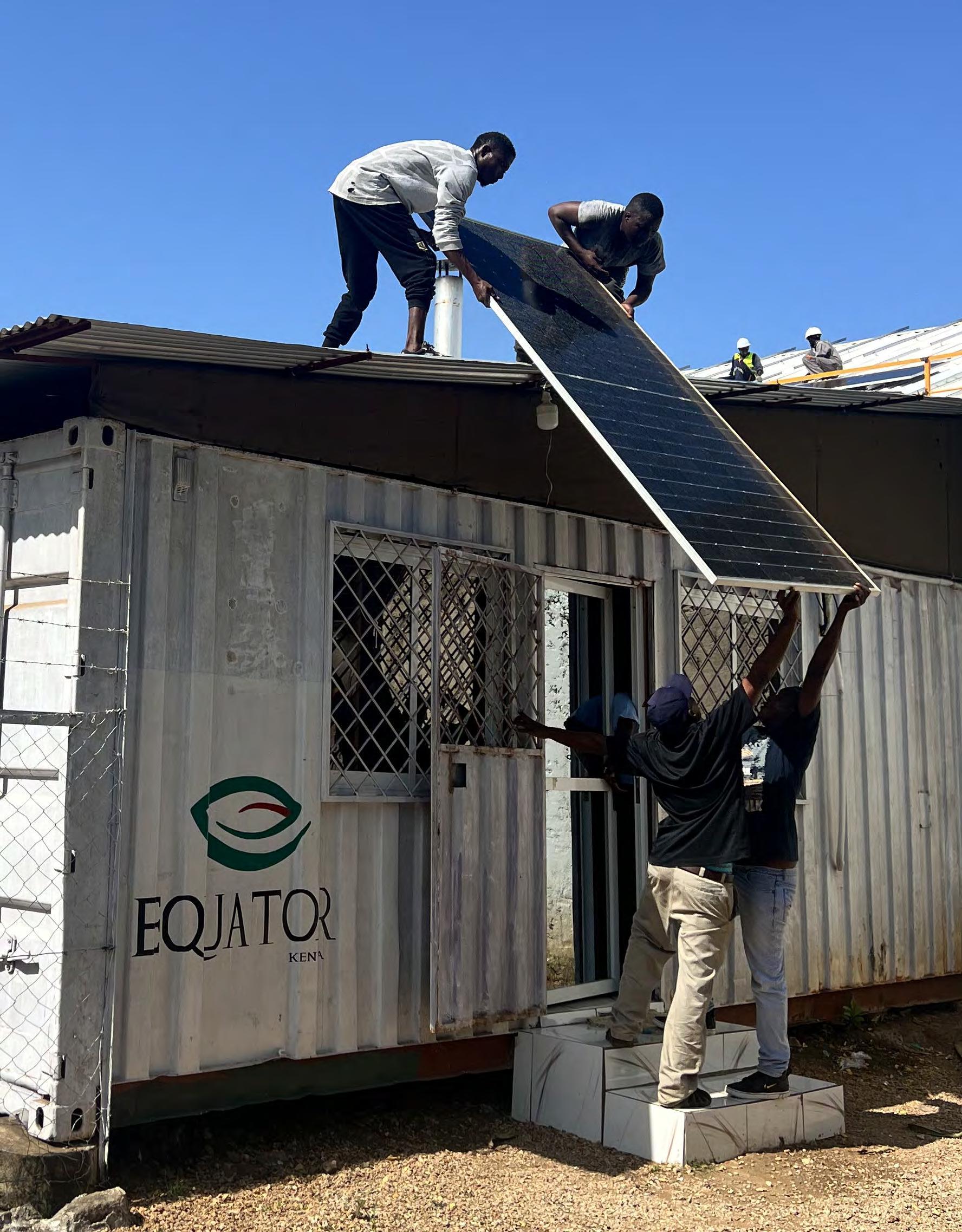
The Equator team put up the solar panels up on the roof to ensure that the chili processing plant has a steady supply of power.




